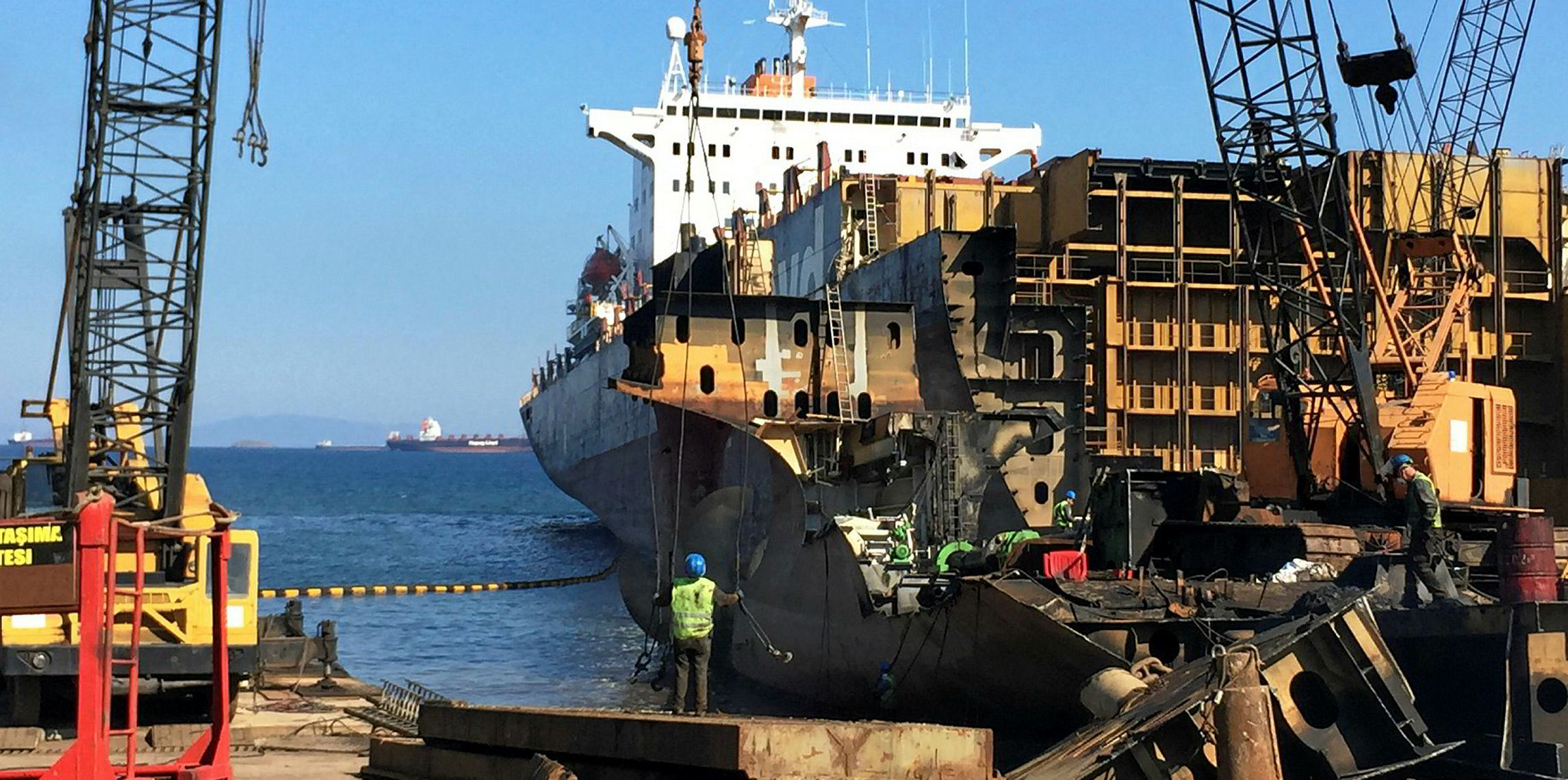Leading containership owner AP Moller-Maersk says that the inclusion of non-European shiprecyclers on Brussels' approved yards list could trigger a much-needed transformation of the global scrapping industry.
John Kornerup Bang, the Danish shipping giant’s head of sustainability strategy, tells TradeWinds the move would “drive efforts to bring South Asian recycling facilities up to international standards”.
All scrapyards that avoid environmental damage and guarantee safe working conditions “must be included, regardless of their location”, Bang says.
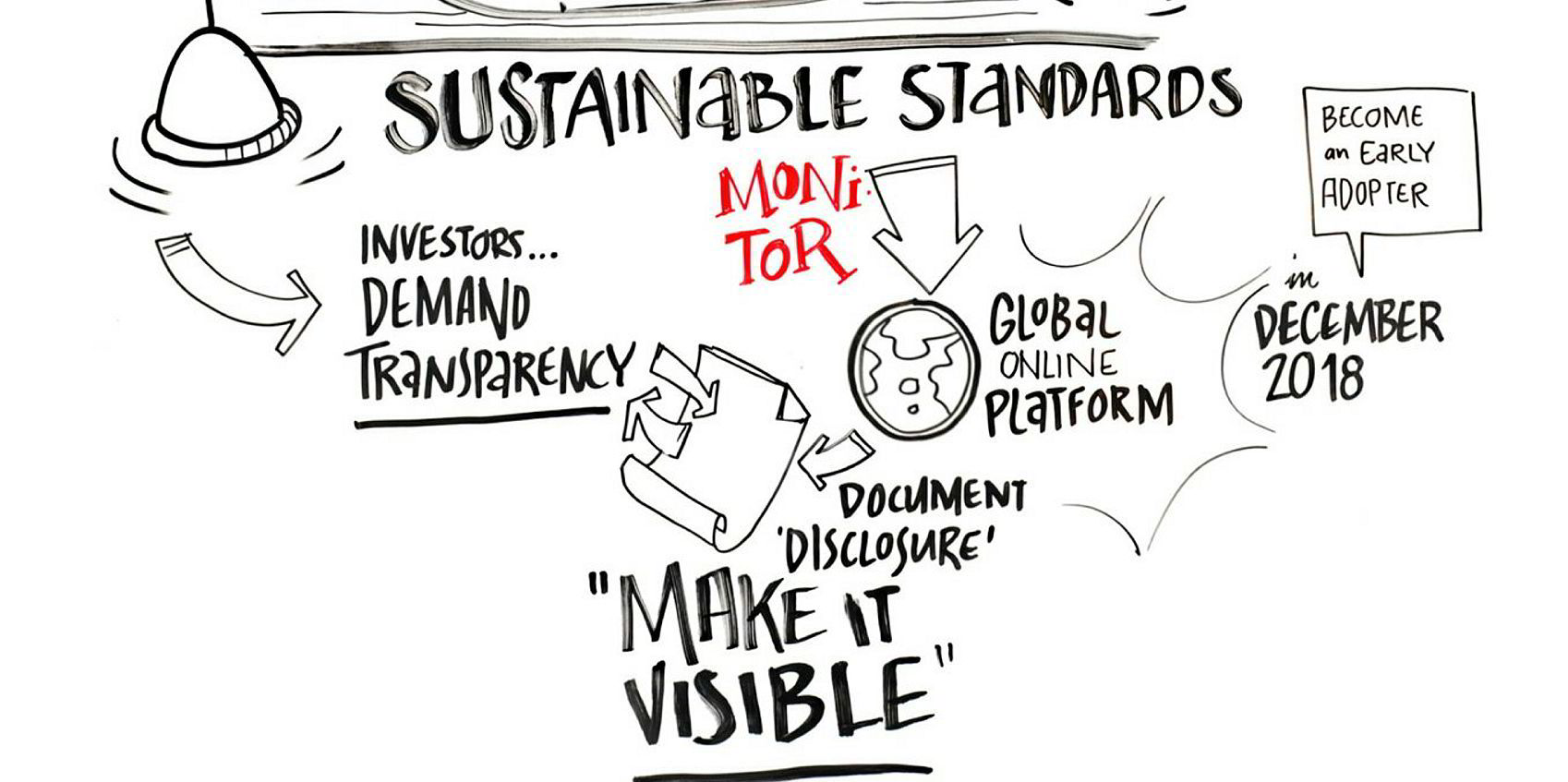
The Ship Recycling Regulation (SRR) which came into force at the end of last year, requires all large seagoing vessels sailing under the flag of a European Union member state to use one of 26 approved recyclers, which are mainly within the EU.
A couple of yards in the Indian subcontinent, where most vessels are scrapped, have been vetted but have still to be included on the list.
Additions from further afield
International Shipbreaking of the US and Turkey’s Leyal are Non-EU recyclers recently added to the list.
But faced with limited options to scrap EU-flag tonnage, shipowners are urging European regulators to open the door to facilities further afield that meet international standards.
Bang says the incentive of being included on the list is encouraging major changes in India’s Alang to address problems facing the shipping industry — unsafe recycling working conditions and environmental contamination.
At TradeWinds’ Ship Recycling Forum in Hamburg last year, he said that widespread poor standards made scrapping “one of the darkest spots in the ship value chain”.
It has been proven on the ground that both responsible and commercial shiprecycling — to the level of the best in China and Turkey — can successfully be done in India provided the right skills, mindsets and investment are there
John Kornerup Bang
'Significant progress'
But now Bang says the past two-and-a-half years had seen “significant progress” in Alang, where Maersk is in partnership with a scrapping facility to handle some of its end-of-life vessels.
He says the company also welcomes the European Commission’s commitment to transparency by explaining the reasons behind inclusion or exclusion of yards from its list, thereby giving them the opportunity to take corrective action.
“It has been proven on the ground that both responsible and commercial shiprecycling — to the level of the best in China and Turkey — can successfully be done in India provided the right skills, mindsets and investment are there,” says Bang.
Roger Strevens, car carrier specialist Wallenius Wilhelmsen’s vice president global sustainability, says that although the latest EU list marks “significant progress” in terms of capability and capacity to handle large vessels, there remains insufficient choice to ensure competitive pricing and guarantee that a slot will be available when required.
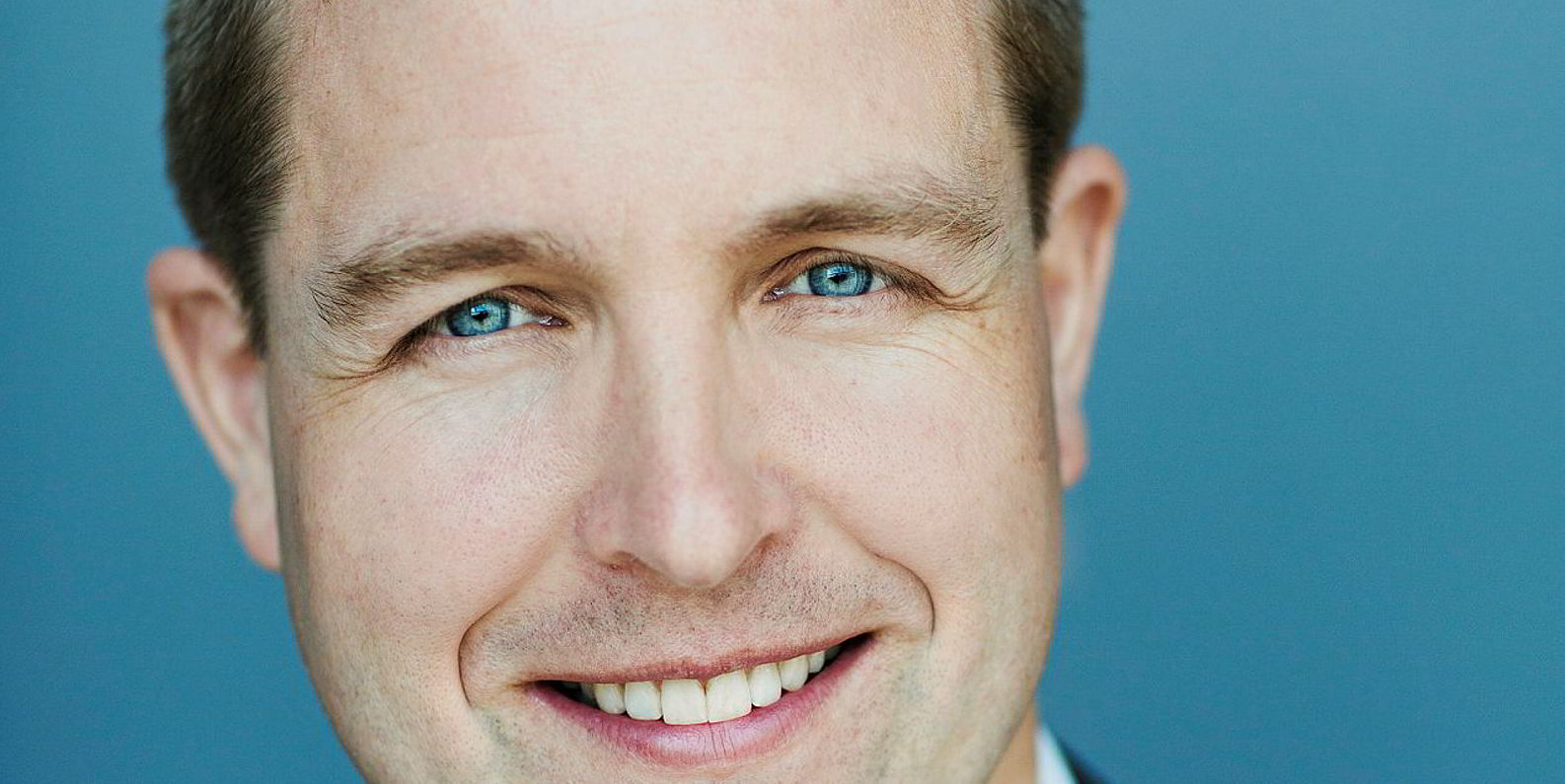
He also subscribes to the view that “facilities should be judged on their merits and not on their geographical location".
Facilities that have been audited by a reputable, competent party and have been found to meet the requirements" should be included on the EU White List
Roger Strevens
Strevens says: “Facilities that have been audited by a reputable, competent party and have been found to meet the requirements should be included on the EU White List.”
Maersk and Wallenius Wilhelmsen are members of the Ship Recycling Transparency Initiative launched last year for owners to share information on their shiprecycling policies and practices.
'Growing improvement'
Andrew Stephens, executive director of the Sustainable Shipping Initiative, which hosts the platform, says the expanded list of EU-approved recycling facilities indicates a “growing movement towards setting a new norm for responsible shiprecycling”.
He describes the list as an important contributor to changing the current industry narrative, with more “shipowners taking cradle-to-grave responsibility for their vessels”.
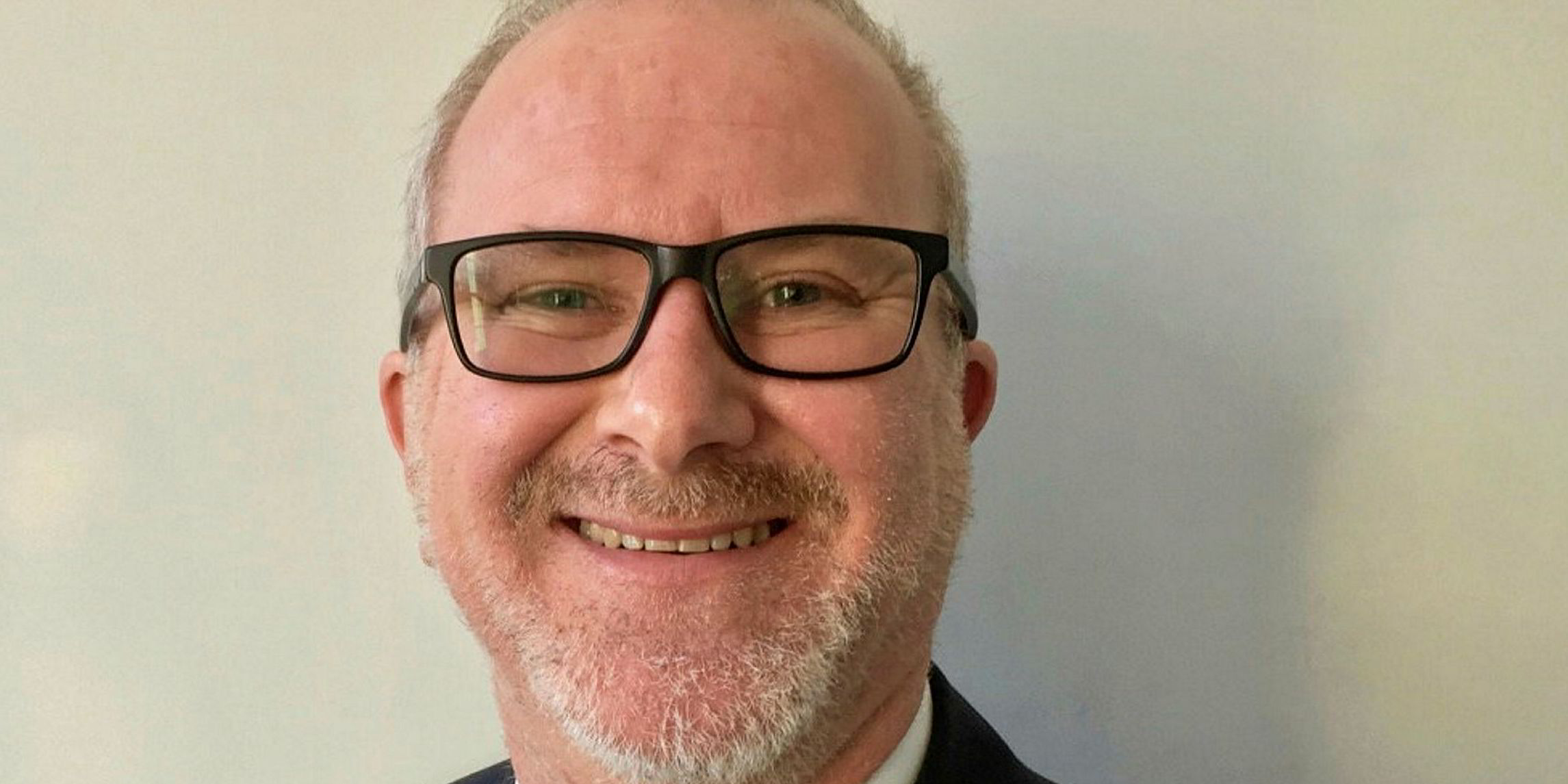
But approved capacity will need to increase to cope with current and future demand now that the regulation is in force and due to China banning the import of foreign vessels for recycling.
Stephens also stresses that inclusion on the EU list should depend not on geography but on whether a facility meets safety and environmental requirements of the EU and the IMO’s Hong Kong International Convention for the Safe and Environmentally Sound Recycling of Ships, which is now 10 years old but still to be ratified, as well “shipowners’ own defined standards”.
More level playing field
Questioned on whether the lower prices offered in Europe for superannuated tonnage will continue to drive ships to India, Pakistan and Bangladesh, Stephens says that with an increasing number of recyclers meeting or exceeding the EU’s regulations, a more level playing field can be expected regardless of a yard's location.
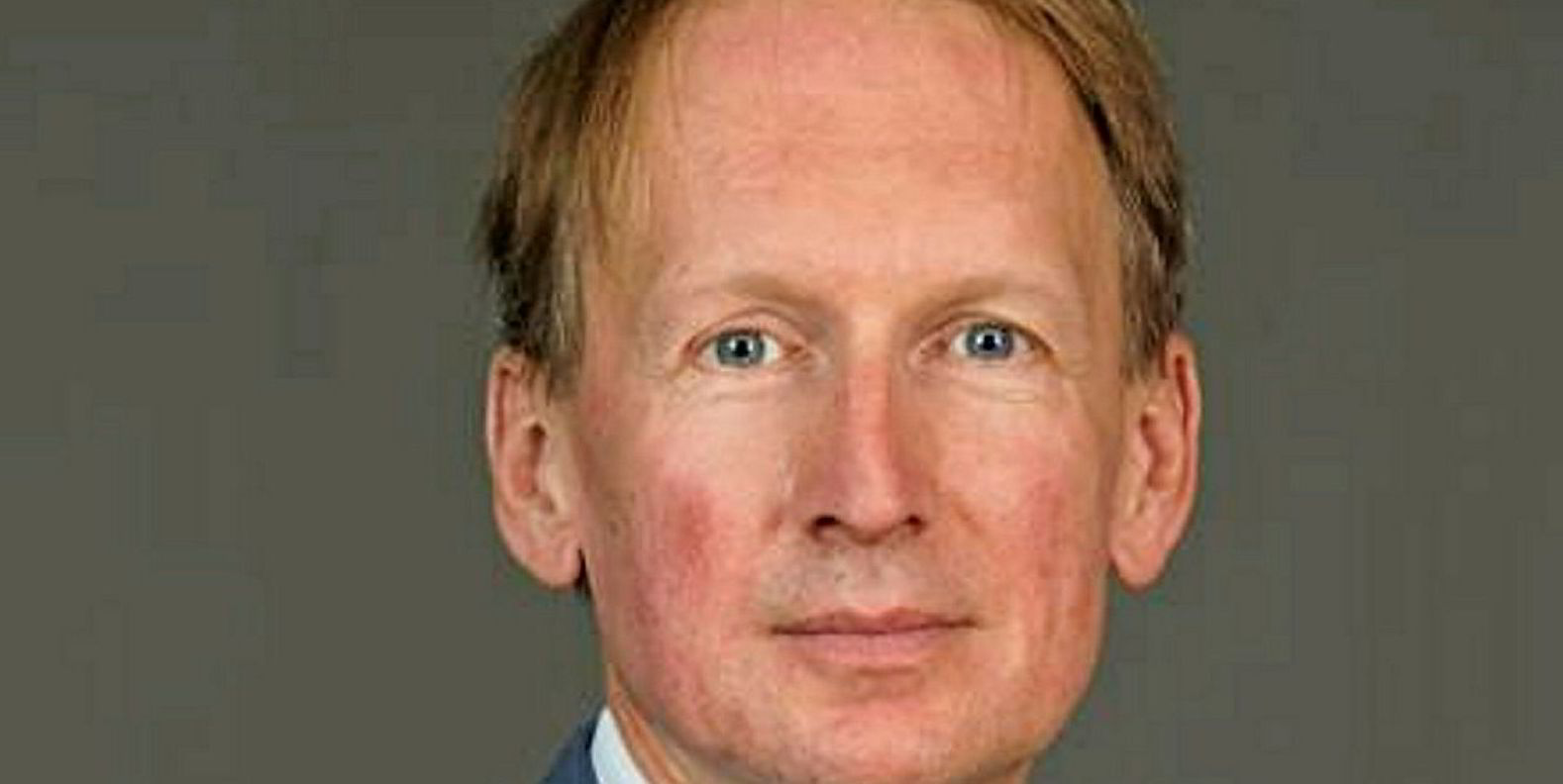
EU-compliant early adopters are likely to be rewarded over time with a growing market share.
However, dry bulk industry association Intercargo is among those warning that the breakers on the approved list are insufficient to scrap, for example, European-flag bulkers above panamax size. Only a small fraction of bulkers demolished since 2015 were recycled outside the Indian subcontinent, the group says. Those demolitions took place exclusively in Turkey.
Bang says with the number of end-of-life vessels increasing and the inability of European yards to accommodate ships of a certain size, the more comprehensive the EU list then the “better for shipowners”.
The global shipping industry supports the ratification and entry into force of the HKC [Hong Kong Convention] as soon as possible and calls upon governments to start the ratification process urgently
Martin Dorsman
'More than enough capacity'
The EC says that, based on calculations by the European Maritime Safety Agency, that the 1.7 million ldt theoretical maximum output of the 26 approved recycling yards is more than enough to cope with expected demand.
EC sources tell TradeWinds that various approved yards have indicated they can dismantle large ships. "It is a question of trying and not just claiming it is not possible," said one source.
Martin Dorsman, secretary general of the Brussels-based European Community Shipowners' Associations (ECSA), says the Hong Kong Convention is the only instrument able to ensure a globally well-balanced list of compliant yards, capacity for the largest seagoing vessels and an international level playing field.
“The global shipping industry supports the ratification and entry into force of the HKC [Hong Kong Convention] as soon as possible and calls upon governments to start the ratification process urgently,” he says.
ECSA urges the EC to “acknowledge and encourage progress” at breakers in the process of upgrading.
Also, if a non-EU facility’s list application is rejected, it is important that the reasons are made clear so it can take corrective measures and reapply. ECSA is urging the EC to speed up the auditing of recyclers in India, says Dorsman.
